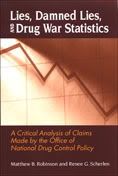
Alan Greenspan belongs to the Club of Emasculated Moderate Elites who enabled corporate theocrats to destroy the American Dream at home and annihilate our moral authority abroad. A prerequisite for membership is to first allow crazy ideologues to exploit their prestige and later disown the disastrous policies their reputations facilitated. Former Secretary of State Colin Powell is a charter member of this club and a pathetic figure who criticizes the Bush Administration about Iraq when it no longer matters. Powell’s domestic policy soul mate, Alan Greenspan, joined him with his new memoir,
The Age of Turbulence: Adventures In a New World.Actually, one could argue that Greenspan was a charter member as early as 2001. The prescient and sagacious
Paul Krugman wrote the following for his column entitled “Reckonings; Doing the Wrong Thing” on February 14, 2001:
“Three weeks ago Alan Greenspan, in his now-famous testimony to the Senate Budget Committee, gave decisive aid and comfort to the advocates of huge, irresponsible tax cuts. Rumor has it that Mr. Greenspan himself was taken aback by the feeding frenzy unleashed by that testimony, and that he is now engaged in a backdoor campaign to limit the damage. (Damage to the nation, or to himself? Good question.) The Medley Report, a newsletter on economic affairs, says that ‘many Congressional Democrats have heard Mr. Greenspan -- or his aides -- tell them that he actually favors something like $1 trillion in total tax cuts rather than $1.6 trillion.’
But if those rumors are true, Mr. Greenspan's performance yesterday, in his first official testimony since he let the genie out of the bottle, was a profile in cowardice. Again and again he was offered the opportunity to say something that would help rein in runaway tax-cutting; each time he evaded the question, often replying by reading from his own previous testimony. He declared once again that he was speaking only for himself, thus granting himself leeway to pronounce on subjects far afield of his role as Federal Reserve chairman. But when pressed on the crucial question of whether the huge tax cuts that now seem inevitable are too large, he said it was inappropriate for him to comment on particular proposals.
In short, Mr. Greenspan defined the rules of the game in a way that allows him to intervene as he likes in the political debate, but to retreat behind the veil of his office whenever anyone tries to hold him accountable for the results of those interventions.”
The upshot is that Greenspan’s reputation in 2001 was at stratospheric levels following eight years of prosperity under President Clinton. It was a flawed prosperity to be sure, aided by the Internet bubble and trade policies that rewarded corporate elites at the expense of too many working people. Nevertheless, the fiscal management of the country was far superior under President Clinton and most were better off than they are today. Greenspan and Clinton Treasury Secretary Robert Rubin were regarded as the architects of an economic renaissance.
As Krugman illustrated in his column over six years ago, Greenspan allowed the tax cutting privatization fundamentalists to exploit his reputation so wayward congressional moderates would go along. And when he had the chance to correct the record and prevent the fiscal insanity to follow, he choked. As Krugman put it in that column’s final paragraph:
“Mr. Greenspan faced a test of character yesterday. He didn't have to admit to a mistake; to do the right thing, all he had to do was ‘clarify' his previous remarks. Yes, the headlines would have said ‘Greenspan Makes U-Turn.’ But isn't it worth accepting some brief personal embarrassment in order to head off a looming policy disaster that you yourself have helped create? Apparently not.”
And what a disaster it’s been! Even without 9/11 and the Iraq War, the tax cutting privatization fundamentalists had us headed toward a path of deficits minus meaningful investments. It’s one thing to accumulate deficits if we make investments in infrastructure and human capital that deliver a return such as education, health care, renewable energy, bridges and levies. Contrary to generations of conservative propaganda however, the super wealthy don't "invest" their wealth into the economy and create jobs. Most
horde it because they don't need to spend frequently on necessities.
Greenspan's conduct in 2001 resulted
in less money for people who truly are the engine of economic growth: small business entrepreneurs, salaried employees earning under $100,000 per year and low wage earners.
Yet Greenspan continues to reject any accountability for his transgressions. According to the
New York Times, Greenspan is
“chagrined about his role in the Bush tax cuts.” The article describes Greenspan as surprised at how his endorsement of the Bush tax cuts would be perceived even as he recounts how Robert Rubin and Senator Kent Conrad, of North Dakota warned him.
Yet Greenspan’s bewilderment is at best disingenuous. Rather like Claude Raines “shock” at finding gambling in Casablanca. He endorsed Bush’s tax cuts because they empowered the Ayn Rand economic fetishists who promote wealth redistribution in favor of the wealthy while claiming to champion liberty and a culture of work. Indeed, as
Harriet Rubin reported in the
New York Times, Greenspan was an admirer of Rand’s work.
As a reward for his disservice to the American people, Greenspan’s book will no doubt soon become a best seller as the republic spirals towards fiscal insolvency. That is Alan Greenspan’s legacy unless a true progressive is elected president in 2008. Either way Greenspan’s reputation should be condemned to a special purgatory for so-called moderates such as Colin Powell who mortgaged America’s standing and future for their own self-aggrandizement.
 This morning I watched Tim Russert of Meet the Press, interview Senator Hillary Clinton. As one might expect, Russert challenged Clinton's numerous contortions about Iraq since 2002. Russert did a good job and perhaps I’m nitpicking but this error on his part stuck in my craw. Russert replayed Senator Clinton’s October 10, 2002 speech on the Senate floor. It’s a speech many of us bloggers have heard or read many times before, this passage in particular:
This morning I watched Tim Russert of Meet the Press, interview Senator Hillary Clinton. As one might expect, Russert challenged Clinton's numerous contortions about Iraq since 2002. Russert did a good job and perhaps I’m nitpicking but this error on his part stuck in my craw. Russert replayed Senator Clinton’s October 10, 2002 speech on the Senate floor. It’s a speech many of us bloggers have heard or read many times before, this passage in particular:





